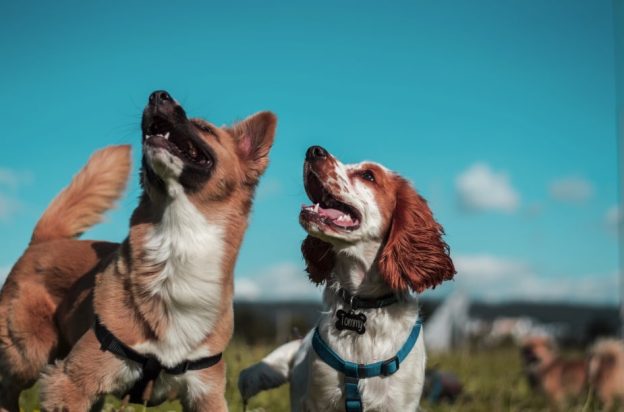Most of us know about gingivitis and its dangers, so we actively work to stop it. We do this via dentist visits and brushing our teeth. Dogs can also experience gum disease and other issues. Like how we care for our own mouths, we need to do the same for them. That is true whether they are pets or working dogs you rely on for your farm. To stop painful dental issues, read on to learn about what you can do to improve animal health.
Why does gum disease happen in dogs?
Gum disease can happen in dogs for multiple reasons. Plaque and tarter build up on the gum line is the most common cause. The first is a sticky bacteria film you can brush away. As time passes though, it can harden and become tarter. This is far more difficult to remove. The bacteria here can irritate gums and cause infections. An overactive immune system can cause gum concerns as well.
The issue
Once gum disease becomes severe, dogs normally need their teeth extracting. The teeth here will be so badly harmed by bacteria buildup. They may be loose since the surrounding jaw bone and gums have also degraded. The disease can become very painful, resulting in dogs not playing with toys or eating. The latter can result in weight loss and worse.
The tricky thing with canine gum disease is that a fair amount of decay occurs under the gum line. So, it is invisible to the naked eye. Our dogs can’t tell us when their mouths hurt either. You can spot some signs by having a quick look under the lips though. Others you may find through a change in the animal’s behaviour and habits. Subtle gum disease signs in dogs include bloody saliva, bleeding gums, chewing toys on only one side, and irritability or aggression. Others include discoloured or missing teeth, excessive drooling, and unexplained weight loss.
Go to the vet straight away if you notice signs or other unusual things about your dog’s mouth. A professional will be able to determine what is going on. You can then choose suitable animal health products to help.
Periodontal disease
This condition can be very painful or uncomfortable for dogs. That is particularly true if it gets to the latter stages. If it wasn’t bad enough, untreated gum disease can cause other health concerns. Should you fail to address the issue, bacteria will carry on gathering in teeth and pockets of the gums. Some could travel to the back of the throat, resulting in tonsillitis.
With enough time, the bacteria can find its way to your dog’s bloodstream too. Here, it can spread to many other parts of the body. Those animals with periodontal disease are more vulnerable to eye, liver, kidney, and heart disease. Their immune system can suffer as well, which will make it harder for them to live normally.
Teeth preservation
For you to preserve your dog’s teeth, gums, and general animal health, you must introduce an oral health regimen. Stick to it as well. It is simplest to stop gum disease in dogs. With early diagnosis and treatment though, you can reverse early-stage gingivitis.
Brushing the dog’s teeth can aid you in fighting the disease. Use toothpaste meant for dogs. As for the toothbrush, use an appropriately size or a finger-brush and scrub once a day. Other solutions like dental treats, dental toys, and oral health supplements also work.
Like us humans though, there isn’t a substitute for professional cleanings. A vet will dispose of all the tarter and plaque from the teeth when they are under anaesthesia. They will probably do x-rays to examine bone structures too. At-home care and the occasional deep clean can help to stop gum disease in dogs and keep their mouths healthy.
Use our stellar animal health goods
At JS Hubbuck Ltd, we’ve managed to satisfy the needs of many customers throughout the years. They know that the agricultural merchandise in our collection is reliable and high quality. So, whenever they need important items for animals, crops, and more, they can rely on us.
So, if there is anything we can do for you when it comes to animal health or other parts of agriculture, please get in touch. We’d be happy to advise you.

